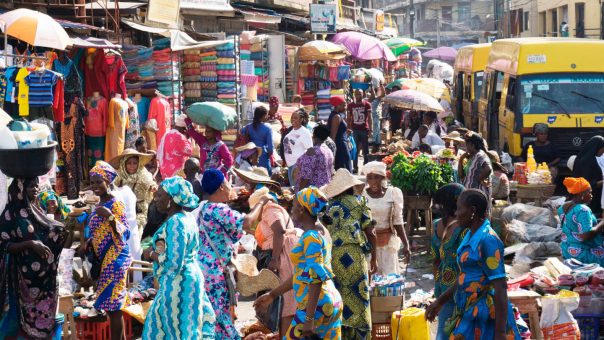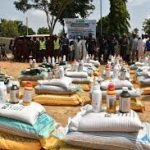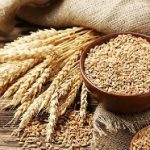Nigeria’s Minister of State for Agriculture and Food Security, Aliyu Sabi, has linked the recent decline in food prices to increased local production, government interventions, and the onset of the harvest season, a development that could offer temporary relief to small businesses that rely on food commodities.
Speaking during World Food Day in Abuja, Sabi said agricultural investments made since 2023 under the National Agricultural Growth Scheme Agro-Pocket (NAGS) are now yielding tangible results in the market.
According to him, large-scale cultivation of staple crops such as wheat, maize, and cassava has boosted supply. “From 2023, we embarked on massive production through the NAGS Agro-Pocket programme. We injected almost 500,000 metric tonnes or more of wheat, including maize, cassava, and other commodities we promoted. This ramped-up production is what’s responsible for the drop in food prices,” he explained.
Sabi dismissed claims that imported food was responsible for moderating prices, stressing that the temporary import window approved by the government last year was only meant to cover supply gaps. “The imported items have not even been released. The claims that imported food is what crashed prices are not true,” he said.
He noted that speculation among food hoarders contributed to the current price adjustment, as those stockpiling products began releasing goods into the market following rumours of impending imports. “When supply increases, prices naturally come down,” he added.
The minister said the harvest period, which has begun in the southern regions and will progress northwards, is expected to maintain downward pressure on prices in the coming weeks. For market vendors, food retailers and processors, this could ease sourcing costs, although sustainability remains uncertain.
Sabi emphasised the role of state governments in supporting national food reserves through buffer stock programmes and free input distributions to smallholder farmers. He recalled President Bola Tinubu’s directive to release over two million bags of fertiliser last year, stating that the intervention eased production expenses. “Yes, people still complain about fertiliser prices, but the intervention made a significant impact. Many of those who benefited last year are still using the savings and inputs for this farming season,” he said.
On mechanisation, Sabi revealed that new Belarus tractors are being prepared for deployment across Agricultural Mechanisation Service Centres to provide affordable services to smallholder farmers. He assured that strict measures will prevent misuse. “Some will even shut down automatically if due for servicing and not maintained,” he warned, noting that training and spare parts support would accompany the rollout to ensure sustainability and create value-chain jobs for youth.
The minister further disclosed that the government is reviewing companies that received silo concessions to ensure compliance. “Those who are performing may have their contracts renewed, while those failing will face termination. These facilities belong to Nigerians and must serve national food security,” he said.
Reaffirming the administration’s commitment to food security, Sabi said Nigeria is entering a phase of precision agriculture driven by innovation and stronger policy coordination. “We have the highest political will ever given to this sector. With all we are doing from inputs and mechanisation to digital agriculture , Nigeria will soon witness a new era of food sufficiency and value addition,” he affirmed.
For agro-based MSMEs, millers, retailers and food processors, the months ahead will test whether today’s price relief can translate into stable operating conditions, lower input costs, and improved margins.










